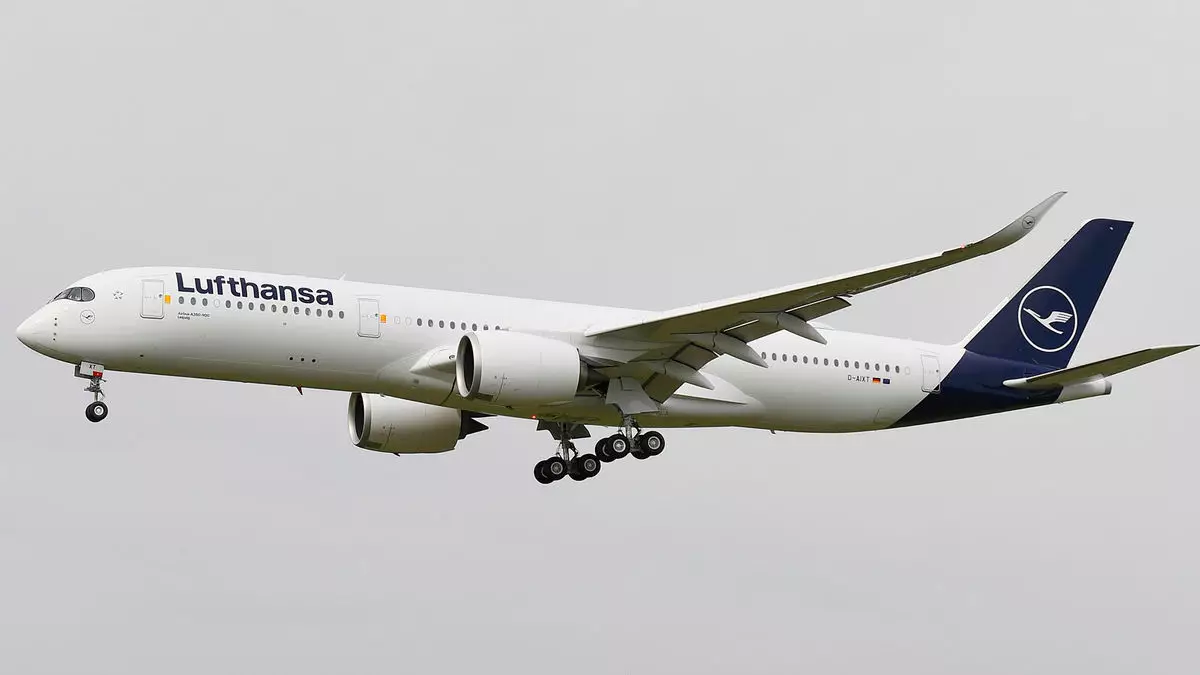In May 2022, Lufthansa found itself at the center of a significant scandal involving allegations of discrimination against Orthodox Jewish travelers. The Department of Transportation (DOT) issued a hefty $4 million fine against the airline, a direct consequence of its handling of a flight where 131 passengers were prevented from continuing their journey based solely on their shared religious and ethnic background. This incident raises profound questions not only about airline security protocols but also how they intersect with cultural sensitivities in what is an increasingly multicultural world.
On May 3, 2022, passengers traveling from New York’s JFK Airport to Budapest via Frankfurt were subjected to strict face mask rules mandated by Lufthansa. The flight crew emphasized these regulations, which also prohibited gathering in the aisles. Upon arrival in Frankfurt, the crew noted non-compliance but failed to identify specific offenders. Instead of addressing individual infractions, Lufthansa made the sweeping decision to bar 128 of the 131 passengers from boarding their connecting flight to Budapest. The action taken by Lufthansa raised immediate concerns about discrimination, as these passengers were primarily Orthodox Jews traveling for a religious event.
The DOT later described this situation as an adverse action against the passengers based solely on shared religion and/or ethnicity, an assertion that has deep implications for how airlines should navigate culturally sensitive situations. While Lufthansa claimed that the crowded nature of the plane and the numerous infractions made it impossible to pinpoint individual violators, it was evident that a broader approach could have averted the issue entirely.
The assertion that Lufthansa acted in a discriminatory fashion stems from both the nature of the collective barring of passengers and the airline’s failure to accurately assess the individual situations. According to the consent decree, the DOT explicitly highlighted that the decision had a discriminatory effect, violating established regulations against discrimination in transportation services.
In response to the fallout, Lufthansa issued a public apology and engaged with organizations such as the American Jewish Committee to develop a training program aimed at addressing antisemitism and discrimination. It was a commendable step, signaling a proactive stance toward making amends. However, the airline continued to maintain that its actions were not driven by bias but were rather the result of operational miscommunication and the inability to identify specific individuals involved in rule violations.
In the wake of this incident, Lufthansa took substantive steps to mitigate the repercussions of the event. By collaborating with reputable organizations, they sought to provide training and foster dialogue surrounding tolerance and diversity. The airline’s assertion that it was the first to adopt the International Holocaust Remembrance Alliance’s definition of antisemitism, combined with statements promoting good will, illustrated its intent to reconcile with the affected communities.
Yet, there is a lingering skepticism regarding whether these measures will translate into genuine systemic change within the company’s operational policies. Will training programs sufficiently prepare staff to handle culturally sensitive situations? Can a culture of awareness and inclusion genuinely permeate an organization that has faced substantial legal and reputational challenges?
The Lufthansa incident serves as a crucial learning point in the aviation industry and highlights the interplay between compliance, safety, and cultural sensitivity. Airlines operate in a diverse environment and must prioritize respectful treatment of all passengers, understanding that their decisions carry immense consequences.
As the airline community reflects on this case, a broader dialogue around the intersection of technology, enforcement, and cultural awareness must emerge. It is imperative for airlines to not only prioritize safety through compliance measures but to also ensure that such measures are executed with a nuanced understanding of the varying backgrounds and beliefs of their passengers. Moving forward, companies must actively foster an environment of inclusivity, ensuring that all travelers feel respected and valued, regardless of their faith or ethnicity. Only through proactive engagement and genuine accountability can the aviation sector hope to navigate the complexities of modern air travel.


Leave a Reply